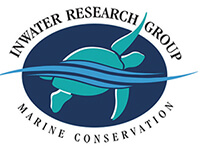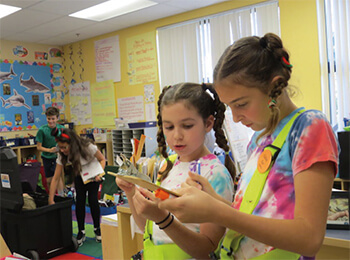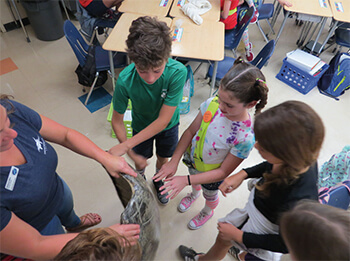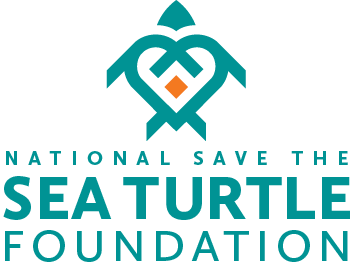Taking Classroom Education to a Whole New Level
Kara Muzia
Inwater Research Group, Inc.
Inwater Research Group, Inc.

There are STEM (Science, Technology, Engineering, and Math) programs and then there’s Limestone Creek Elementary. This elementary school, located in the heart of Jupiter, Florida, gives hands on interactive learning a new meaning.
At Inwater Research Group, we first heard about Limestone Creek through our flagship education program: the Traveling Trunks. Cheryl Kenney, a fifth grade teacher at Limestone Creek, borrowed both of our educational trunks, Darker Skies Darker Beaches and Traveling Turtles, to educate her classroom. The results were outstanding.

The Darker Skies Darker Beaches education program let the students put their critical thinking skills to the test as they came up with beach friendly lighting! After learning about the effects of light pollution on nesting turtles, students are greatly motivated to create their own prototypes. Using batteries, white and red lights, and different coverings the students design the perfect, turtle friendly lights. Material costs, conductivity of materials also play a role in their designs, and at the end they make a commercial advertising their newly designed lights!
The Traveling Turtles program allows the students to put their marine biology skills to the tests. In one of the lessons, students are given model turtles to weigh and measure, and take the overall assessment of health. Depending if the turtles have injuries or if they’re underweight, the students decide whether to “Rehab or Release” the animal.
These trunks, and their fantastic lessons, are available for teachers to borrow for free. The power of hands-on learning is one worth spreading, and Inwater Research Group along with their partners at National Save the Sea Turtle Foundation are proud to be able to offer this trunk program.

Mrs. Kenney invited the IRG crew down to Limestone Creek to see our trunks, and her students, in action. Watching the students playing the trunk’s games, you’d never realize that they were learning so much. What struck us biologists was how knowledgeable these young people are about sea turtles. More than just fun facts, these students knew the seven species of turtles, which ones nested in South Florida, their habitats, and even their diet. They fundamentally understood some of the core issues surrounding these marine creatures. When asked what plagues turtles, “plastic pollution” and “light pollution” rank among the highest answer responses.
While her budding scientists were sent out for recess, Mrs. Kenney gave us a tour of the rest of Limestone Creek Elementary. Outside, she shows us the garden. Each classroom is given a raised garden bed to tend, and the results are lush beautiful vegetables such as tomatoes and collard greens that the students take pride in growing.
There’s also a marine science lab where students have access to aquariums and aquatic fish. Limestone Creek is in a formal partnership with the Reef Institute, who sends staff out three times a week to work on the aquariums and with the kids. There’s touch tanks, Pacific and Atlantic tanks where fish and coral are delineated by which oceans they’re grown in. Come May, the students will get to try their hand in coral fragging, saving the world one sea turtle and piece of coral at a time.
Schools like Limestone Creek and classes like Mrs. Kenney’s are a wonderful example of how future generations can learn and have fun at the same time. STEM doesn’t have to be a four letter word - instead it can spell out a great way to teach youngsters about their environment in an interactive way, making students, parents, and educators happy.
Helping Sea Turtles Survive for 39 Years
A NON-PROFIT ORGANIZATION
State of Florida Registration Number CH-2841 | Internal Revenue Code 501 (c) (3)
Web Design & Development by Web Expressions, LLC

